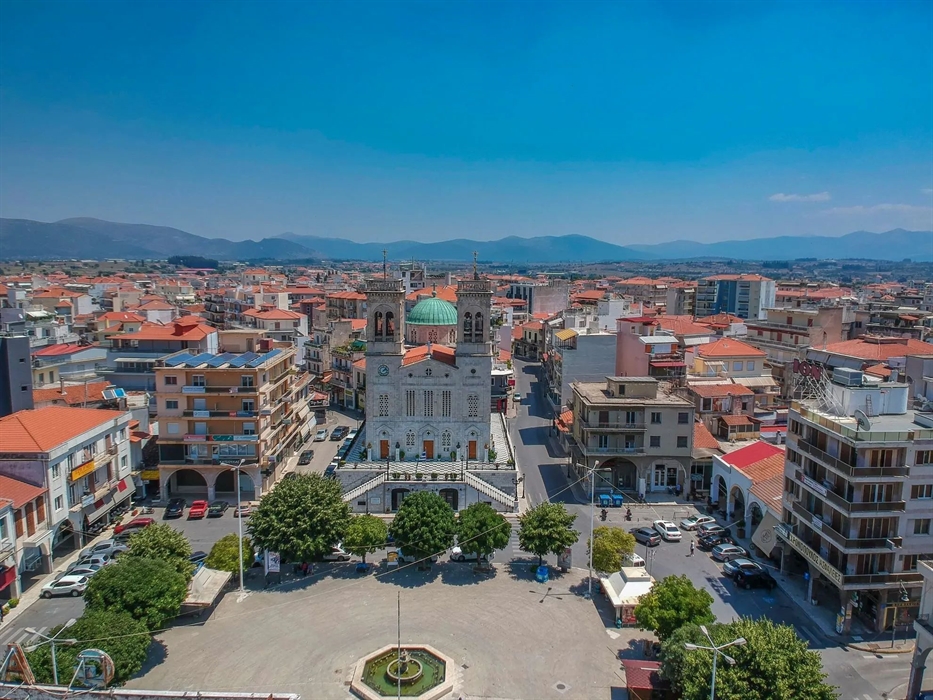The capital of the Prefecture of Arcadia is a very hospitable city, with squares, pedestrian zones and neighbourhoods, shops, modern cafés, bars and restaurants, which invite people to go out to enjoy them.
The capital of the Prefecture of Arcadia is a very hospitable city, with squares, pedestrian zones and neighbourhoods, shops, modern cafés, bars and restaurants and facilities.
As you will notice while strolling around Tripoli, listed neoclassical buildings, houses of local architecture, remarkable churches, squares and parks emerge among the blocks of flats.
The Metropolitan Church of Saint Vasilios, the house where the great, suicide poet Kostas Karyotakis was born, the residence of Apostolos Kolokotronis (nephew of Theodoros Kolokotronis), Malliaropoulos Foundation, the War Museum, the Cultural Centre, Mantzouneios Municipal Central Library and the exceptionally organised Archaeological Museum of Tripoli. will vie for your attention. The statue of Theodoros Kolokotronis looms in the large main Areos Square.
The War Museum is a branch of the War Museum of Athens, and one of the five Greek museums of this type. Its 11 thematic sections present the most important events of modern Greek history. The exhibits include weapons, uniforms, rifles, swords, photographs, lithography, engravings, and many other artefacts.
Historical facts Built at an altitude of 650 m, in the centre of the so-called Basin of Tripoli (of Arcadia or Mantineia), the capital of Arcadia is surrounded by Mounts Artemisio, Parthenio and Mainalo. The original settlement in this location was founded in the early 14th century, and up to the late 19th century, it was called “Tripolitsa” (or Dropolitsa). Many conquerors, such as Venetians and Turks, left their mark in the city. Former capital of Morea, the city really prospered under Ottoman rule, and after its liberation, it became the centre and stronghold of the Greek fighters of the Revolution in southern Greece. In 1825, the Turks occupied and devastated Tripolitsa, but after a while, it was reborn from its ashes.
At a distance of 10 km, to the southeast of Tripoli, lies ancient Tegea, and 12 km north of the city ancient Mantineia.
Did you know that
The Municipality of Tripoli organises annually the Cultural Summer, with theatrical and musical performances and athletic games.
Find the destination on the interactive map below. Open on Google Map.
Σχετικό περιεχόμενο χρηστών (UGC)
Ενημερωθείτε για ενδιαφέροντα θέματα γύρω από τον προορισμό μέσα από το περιεχόμενο των χρηστών μας
Newsletters
- About Us
- FAQ's
- Map
- Tourism Information Centers
- Disclaimer
- Sitemap
- Our Brand
- Media Room
- Add your Business
- Corporate
- MICE

Peloponnese. The land of impossible beginnings





Design and creation from Cosmote
Marinas and Moorings
Diving Centers
Get Inspired
- Media Gallery
- Peloponnese Travel Blog
- The Peloponnese in the Media
- Your Feedback
- Users' General Content
- Users' Local Products
- Users' Events Content
- Ask a Local
More
- My peloponnese vibe
- Our providers Network
- Destinations Map
- Weather
- Public Transport
- Frequently Asked Questions
- Useful Phones
- B2B
- Destination Statistical Data
- Contact


